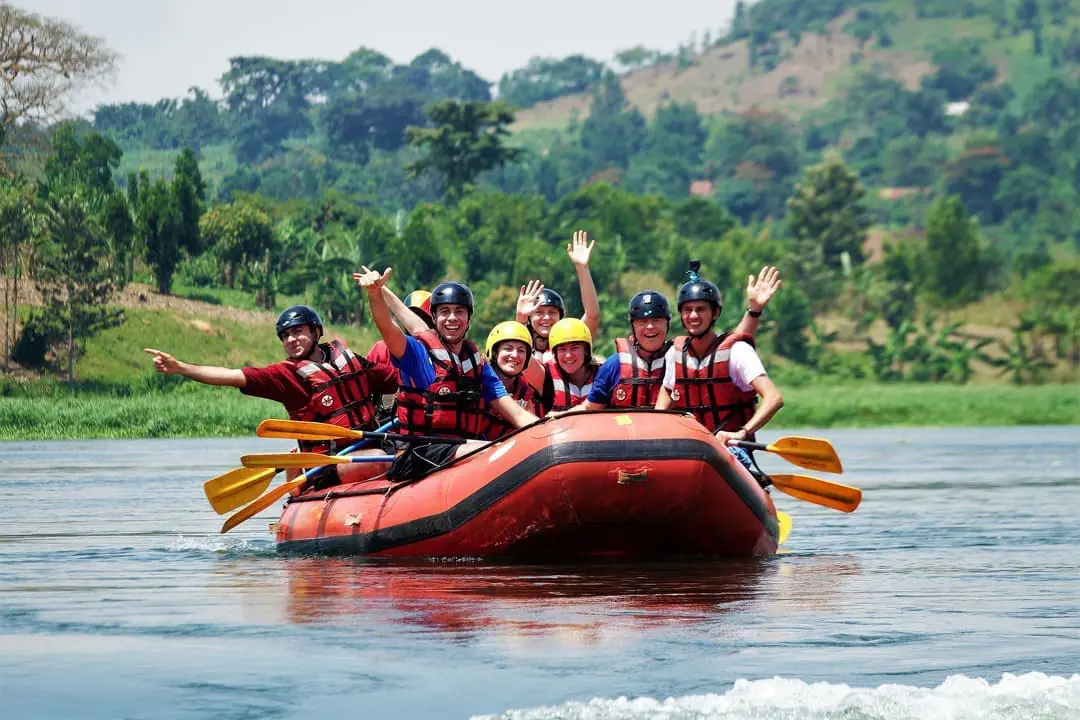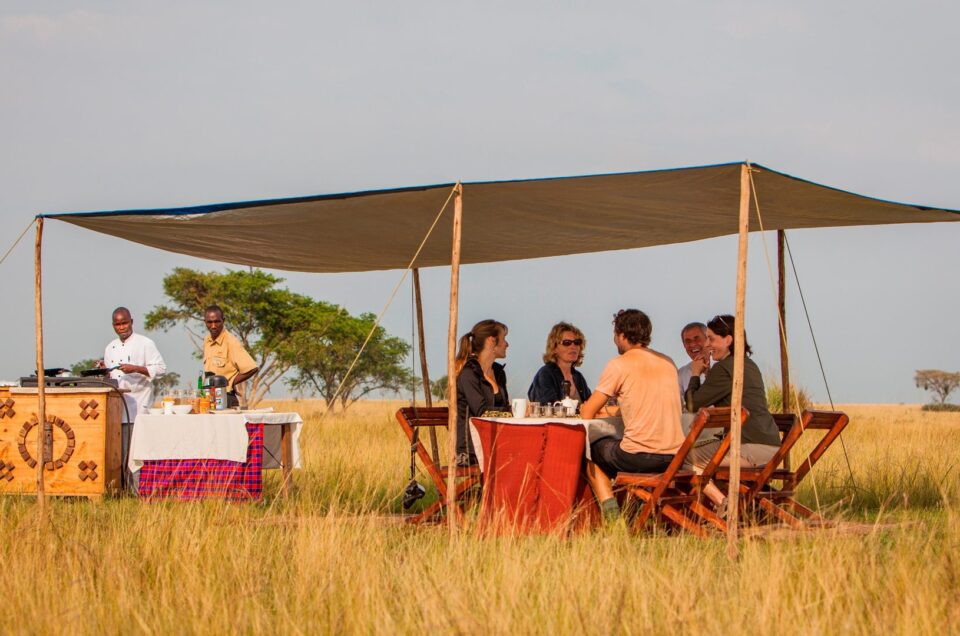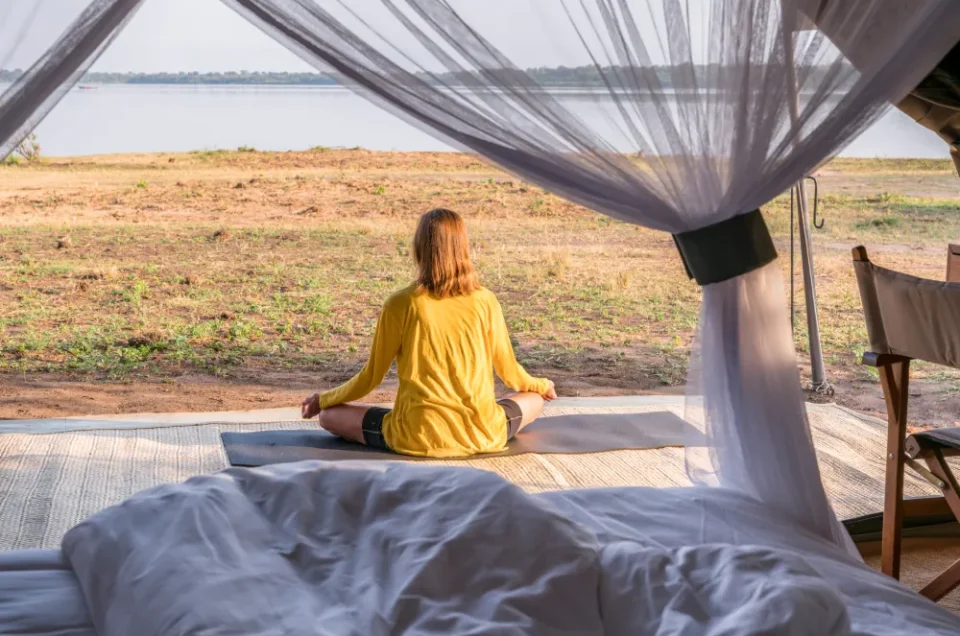Categories
- Accommodation
- Accommodation at Kibale Forest
- Budget accommodation at Kibale
- Budget accommodation in Uganda
- Budget Hotels in Entebbe
- Budget Murchison Falls Accommodation
- Bwindi Guides
- Bwindi National Park Guides
- Entebbe Hotels
- Exclusive Lodges In Murchison Falls National Park
- Exclusive Lodges in Queen Elizabeth National Park
- High End Accommodation At Kibale
- Kibale
- Luxury accommodation at Kibale
- Luxury Accommodation in Queen Elizabeth National Park
- Luxury Hotels In Entebbe
- Luxury Murchison Falls Accommodation
- Midrange accommodation at Kibale
- Midrange Hotels In Entebbe
- Midrange Murchison Falls Accommodation
- Murchison Falls Guides
- Murchison Falls Lodges
- News
- Popular
- Queen Elizabeth Guide
- Queen Elizabeth National Park Accommodation
- Semi-Luxury Entebbe Hotels
- Travel Guide
- Uganda Honeymoon Lodges
- Uncategorized
FAQs

Traveling to Uganda is an exciting adventure, and being well-prepared will help you make the most of your experience. At Choose Uganda Safaris, we want to keep you informed about everything you need to know—from practical details like electrical plugs and cellphones, to important topics such as medication, permits for primate trekking, safety, and cultural customs.
This FAQ guide answers common questions about travel, health, visas, payments, and more to help you feel confident before and during your safari. After booking with us, you will receive detailed information tailored to your itinerary to ensure a smooth and enjoyable trip.
What type of electrical plugs are used in Uganda?
Uganda uses plug type G, which features three rectangular pins arranged in a triangular pattern—just like in the United Kingdom. The standard voltage is 240V, and the frequency is 50Hz. To ensure compatibility with your electronic devices, it’s highly recommended to bring a universal travel adapter.
Will my cellphone work in Uganda?
For the best experience when traveling, it’s recommended to use an unlocked international quad-band cellphone that isn’t restricted to a single network or frequency. This allows you to use any local SIM card seamlessly. You have two main options: purchase an international roaming bundle from your current network provider before departure, or buy a local SIM card upon arrival in Uganda. Network coverage in Uganda is generally reliable and widespread.
You can easily purchase airtime and data bundles from various outlets, including street vendors, kiosks, official mobile network provider stores, or conveniently through mobile apps. Additionally, we offer portable MiFi devices for rent at an extra cost, providing another option for staying connected.
What medications should I bring with me to Uganda?
Be sure to bring any chronic or regular medications you take, along with copies of your prescriptions, in case you need them while abroad. It’s also wise to pack a broad-spectrum antibiotic, loperamide (such as Imodium or Diamode) for treating diarrhea or an upset stomach, and a non-drowsy antihistamine for allergies. Malaria is a risk in Uganda, so we strongly recommend consulting your doctor about taking antimalarial medication before your trip. Additionally, bring insect repellent in your preferred form—spray, cream, or roll-on—to protect yourself from mosquito bites.
Is it better to travel solo or with friends on safari?
Traveling with friends on safari is often more cost-effective, as solo travelers may face additional surcharges. Sharing the trip with one or more friends not only helps split the expenses but also enhances the experience—creating unforgettable memories filled with shared adventures and laughter. That said, solo safaris can offer a unique sense of freedom and personal discovery, so the best choice depends on your travel style and preferences.
Do I need permits for primate trekking in Uganda?
Yes, permits are required for primate trekking in Uganda. If you plan to go gorilla trekking in Bwindi Impenetrable National Park, you must obtain a gorilla trekking permit, which is limited in availability—so it’s essential to book well in advance. This permit grants you a limited amount of time to observe a gorilla family in their natural habitat. Similarly, permits are also required for chimpanzee and golden monkey trekking.
Be sure to secure these permits ahead of time to guarantee availability. The minimum age for gorilla trekking is 15 years, while for chimpanzee trekking it is 12 years. Some national parks provide alternative activities for children under 12 to enjoy while their parents are on chimp trekking excursions. Gorilla trekking permits currently cost $800, whereas chimpanzee trekking permits range from $100 to $250, depending on the national park.
Do I need to be fit for gorilla or chimp trekking?
Gorilla trekking and other primate tracking activities often involve hiking through dense forests and navigating uneven, sometimes steep terrain. Being in good physical condition is important to fully enjoy the experience. It’s best to assess your fitness level and choose a trek that matches your abilities.
Additionally, for the health and safety of the gorillas and chimpanzees, anyone who is feeling unwell or has a cold will not be permitted to participate, as these primates are vulnerable to human illnesses.
Are there cultural practices I should respect in Uganda?
Yes, it’s important to respect local customs and traditions while visiting Uganda. Always ask for permission before photographing local people, as many value their privacy and appreciate being asked first. Listen carefully to any cultural guidelines your guides provide, and follow them respectfully to ensure positive and meaningful interactions with the communities you visit.
Do I need travel insurance for Uganda?
Yes, it’s essential to have comprehensive travel insurance when traveling to Uganda. Your policy should cover medical emergencies, trip cancellations, lost or stolen belongings, and any unexpected situations that may arise during your trip. Having reliable travel insurance provides peace of mind and financial protection while you enjoy your adventure.
What is the internet connectivity like in Uganda?
Internet connectivity in Uganda is generally reliable in urban areas and popular tourist destinations. Most hotels, lodges, and guesthouses in these areas offer Wi-Fi for guests, though the speed and quality can vary.
In more remote or rural regions—including some national parks—connectivity may be limited or unavailable. If internet access is important for your stay, we recommend checking with us in advance about the availability of Wi-Fi or mobile signal in specific locations.
Do I need a visa to visit Uganda?
Yes, most travelers are required to obtain a tourist visa to enter Uganda. Visa on arrival is no longer available, so you must apply online through the Uganda Immigration portal before your trip. If you plan to visit Uganda along with Rwanda and/or Kenya, consider applying for the East African Tourist Visa, which allows multiple entries between all three countries on a single visa—making it convenient and cost-effective for regional travel.
Can I use credit or debit cards in Uganda?
Credit and debit cards—especially Visa, and to a lesser extent MasterCard and Amex—are accepted at many hotels, lodges, and restaurants in major cities and popular tourist areas. However, access to card payment facilities becomes limited once you’re on safari, particularly in remote regions.
ATMs are available in larger towns and cities, where you can withdraw a limited amount of cash daily. Outside these areas, ATMs are rare, and card transactions may be delayed or fail due to poor network connectivity. It’s strongly recommended to carry some cash in Ugandan Shillings for purchases in rural areas or for small expenses. You can exchange foreign currency at forex bureaux in Kampala and Entebbe, which offer competitive rates.
Is tipping customary in Uganda?
Tipping in Uganda is not compulsory, but it is a thoughtful and appreciated gesture when you receive good service. The amount you tip is entirely up to you and should reflect your level of satisfaction. As a general guideline, many travelers tip around $10 per day for their safari guide if they’re happy with the experience. In upmarket hotels and restaurants, you can tip between 5–10%. Even small tips for porters, housekeeping staff, or local guides are welcomed and can make a meaningful difference.
What vaccinations do I need before travelling to Uganda?
Several vaccinations are recommended—and some required—before traveling to Uganda. You should schedule a travel health consultation in your home country well in advance of your trip to ensure you’re properly protected.
A yellow fever vaccination is mandatory for entry into Uganda and proof of vaccination may be requested upon arrival. In addition, immunisations against DTP (Diphtheria, Tetanus, and Polio) and Hepatitis A are recommended. Alongside vaccinations, it’s important to take preventive measures against mosquito-borne illnesses. Bring a reliable insect repellent, and consult your doctor about starting a malaria prophylactic regimen before your departure.
Is Uganda safe for tourists?
Yes, Uganda is generally a very safe and welcoming country for tourists. Visitors are often met with warm hospitality and friendly smiles from locals throughout the country. The most popular national parks—located in the south and southwest—are secure and safe to visit.
The border areas with Rwanda and the Democratic Republic of Congo remain stable, and all national parks and wildlife reserves are actively protected by rangers from the Uganda Wildlife Authority. Tourism plays a vital role in Uganda’s economy, and the government has established a dedicated Tourism Police Force to ensure the safety of visitors. At Choose Uganda Safaris, your safety is our top priority. We are committed to providing up-to-date travel advice and will keep you informed of any developments to ensure your journey is both enjoyable and secure.
Can I travel in a group and get better pricing?
Yes, traveling in a group can offer significant savings. We organize tailor-made safaris for any group size, and the larger the group, the more cost-effective the trip becomes. We also offer fixed-departure tours that require a minimum of four participants. Group travel allows you to share costs while enjoying the journey with friends, family, or fellow adventurers—making it both economical and memorable.
What’s included in the price of a safari?
Choose Uganda Safaris prices are inclusive of:
• Overnight stays and meals in the lodge on the client’s preferred meal plan
• In cases where warm lunches cannot be provided (e.g. long transfer routes), clients will have packed lunch
• A professional and experienced English -speaking guide
• Transportation in 4×4 vehicle with pop-up roof
• Fuel for the entire tour
• All activities as indicated in the programmes with exception of “optional” listed activities
• All entrance fees and game drive fees
• All relevant government tax
• Drinking water while on the tour
Still got questions?
We've got answers! We're here to help 24 hours 7 days a week.
Our Trusted Partners








